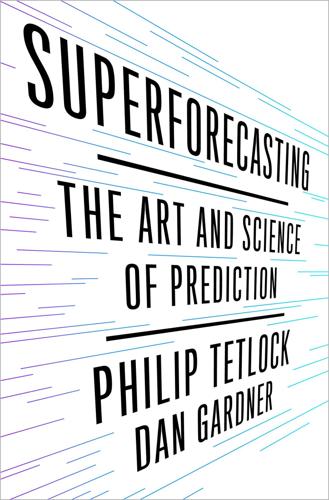
Superforecasting: The Art and Science of Prediction
by
Philip Tetlock
and
Dan Gardner
Published 14 Sep 2015
Now I’ll assemble my guesses to make a final calculation: If 50,000 pianos need tuning once a year, and it takes 2 hours to tune one piano, that’s 100,000 total piano-tuning hours. Divide that by the annual number of hours worked by one piano tuner and you get 62.5 piano tuners in Chicago. So I will estimate that there are sixty-three piano tuners in Chicago. How close am I? Many people have taken a crack at Fermi’s classic puzzler over the years, including the psychologist Daniel Levitin, whose presentation I’ve adapted here.6 Levitin found eighty-three listings for piano tuners in the Chicago yellow pages, but many were duplicates, such as businesses with more than one phone number. So the precise number isn’t certain. But my estimate, which rests on a lot of crude guesswork, looks suprisingly close to the mark.
…
In fact, no serious analysis of this critical forecast was conducted until 1967—years after the decisions to escalate had been made.4 “The foundations of our decision making were gravely flawed,” McNamara wrote in his autobiography. “We failed to analyze our assumptions critically, then or later.”5 Ultimately, it’s not the crunching power that counts. It’s how you use it. Fermi-ize Here’s a question that definitely was not asked in the forecasting tournament: How many piano tuners are there in Chicago? Don’t even think about letting Google find the answer for you. The Italian American physicist Enrico Fermi—a central figure in the invention of the atomic bomb—concocted this little brainteaser decades before the invention of the Internet. And Fermi’s students did not have the Chicago yellow pages at hand.
…
Fermi knew people could do much better and the key was to break down the question with more questions like “What would have to be true for this to happen?” Here, we can break the question down by asking, “What information would allow me to answer the question?” So what would we need to know to calculate the number of piano tuners in Chicago? Well, the number of piano tuners depends on how much piano-tuning work there is and how much work it takes to employ one piano tuner. So I could nail this question if I knew four facts: 1. The number of pianos in Chicago 2. How often pianos are tuned each year 3. How long it takes to tune a piano 4.
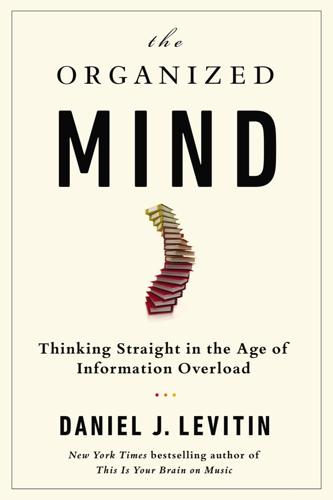
The Organized Mind: Thinking Straight in the Age of Information Overload
by
Daniel J. Levitin
Published 18 Aug 2014
“How many Reese’s Peanut Butter Cups would it take to encircle the globe at the equator?” and “How many piano tuners are there in Chicago?” Approximating involves making a series of educated guesses systematically by partitioning the problem into manageable chunks, identifying assumptions, and then using your general knowledge of the world to fill in the blanks. How would you solve the problem of “How many piano tuners are there in Chicago?” Google wants to know how people make sense of the problem—how they divide up the knowns and unknowns systematically. Remember, you can’t simply call the Piano Tuners Union of Chicago and ask; you have to work this from facts (or reasonable guesses) that you can pull out of your head.
…
In one year, a piano tuner can tune 1,000 pianos (2,000 hours per year ÷ 2 hours per piano). It would take 50 tuners to tune 50,000 pianos (50,000 pianos ÷ 1,000 pianos tuned by each piano tuner). Add 15% to that number to account for travel time, meaning that there are approximately 58 piano tuners in Chicago. What is the real answer? The Yellow Pages for Chicago lists 83. This includes some duplicates (businesses with more than one phone number are listed twice), and the category includes piano and organ technicians who are not tuners. Deduct 25 for these anomalies, and an estimate of 58 appears to be very close.
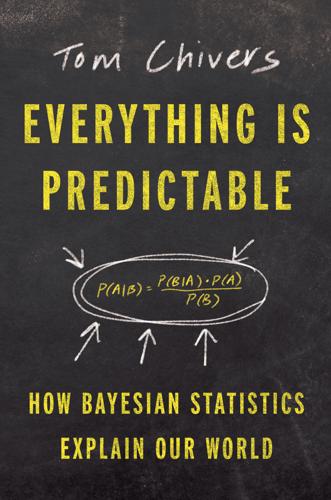
Everything Is Predictable: How Bayesian Statistics Explain Our World
by
Tom Chivers
Published 6 May 2024
I’m not much of a mathematician at all, but I probably think in quite a Bayesian way, updating all the time.” There are also other tricks that good forecasters use. One is the Fermi estimate, named for the great nuclear physicist Enrico Fermi. The classic example is a problem Fermi gave his students: estimate the number of piano tuners in Chicago. Most people would think that that’s an impossible question or might just pull a number out of nowhere in particular. “I dunno, a thousand?” But Fermi broke it down into smaller, still unknown, but more easily guessable parts. Here’s how Tetlock estimated it, using Fermi’s system. Chicago is a pretty big city; smaller than LA, which has about 4 million people, but probably not that much.
…
That’s two thousand hours, but let’s imagine they spend 20 percent of their time traveling between jobs, so sixteen hundred hours a year. That’s eight hundred pianos. If all fifty thousand pianos need tuning every year, and each piano tuner can tune eight hundred of them in a year, then you need about 25,000/800 = 62.5 piano tuners to keep all of Chicago’s pianos in tune.28 Fermi found that breaking down the estimates like this usually ended up with answers not too far from the real number. Tetlock says the real answer is something like eighty, so his estimate is impressively accurate. You can do similar things for probability. How likely is it that—to use another example of Tetlock’s—Yasser Arafat’s death was caused by poison?
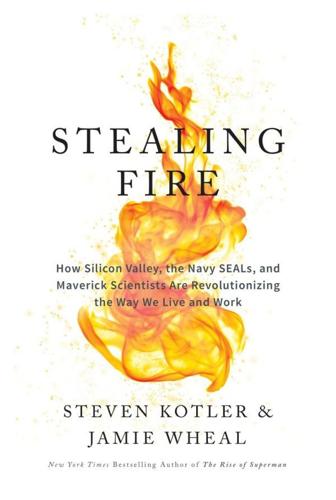
Stealing Fire: How Silicon Valley, the Navy SEALs, and Maverick Scientists Are Revolutionizing the Way We Live and Work
by
Steven Kotler
and
Jamie Wheal
Published 21 Feb 2017
These days, they’ll just get trolled online, then ignored. And what that does is leave more room for open experimentation. It disempowers anyone tempted to escalate his position and privilege, and empowers everyone else to make sense of their own experiences. When the physicist Enrico Fermi famously guessed the number of piano tuners in Chicago, or the number of stars in our galaxy, he did so by applying provisional estimates to impossibly large problems. And while never exact, his guesses often landed within an order of magnitude of the actual number—enough, in other words, to act upon. Today we’re following Fermi’s lead, applying the power of Big Data to approximate answers to the Big Questions.
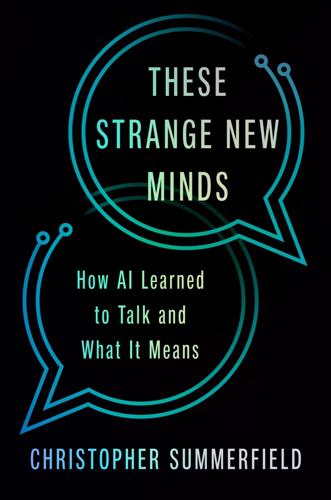
These Strange New Minds: How AI Learned to Talk and What It Means
by
Christopher Summerfield
Published 11 Mar 2025
By taking a detailed look at how deep networks can learn how to learn, as we did in Chapter 21, we can see how it is perfectly possible for neural networks with millions of weights to find ways to approximate the hard-and-fast operations of symbolic AI systems. This allows them to engage in highly elaborate and structured forms of reasoning that were previously thought to be possible only with classical models. This is why, despite being a neural network, LLMs are better at calculus, C++ and Fermi problems (like estimating the total number of piano tuners in Chicago) than your average adult human. There is no magical missing ingredient, no ‘unobtanium’ that forever elevates human cognition to a mystical higher plane. The assertion that LLMs cannot ever ‘think’ or ‘know’ because they lack some vital human spark is just a twenty-first-century version of Richard Owen’s argument about the hippocampus minor – a spurious justification of our own uniqueness.
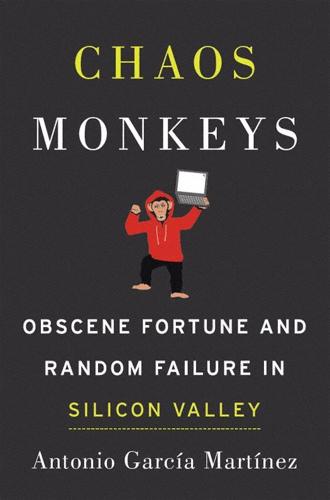
Chaos Monkeys: Obscene Fortune and Random Failure in Silicon Valley
by
Antonio Garcia Martinez
Published 27 Jun 2016
Next up was Rohit Dhawan. Another Googler, he had that very well put together and confident air of someone who felt he had mastered his field of work (he was a Penn grad, of course). His angle was analytical ability, and he asked me a variant of that legendary Enrico Fermi brainteaser about piano tuners in Chicago. His variant was to estimate the number of planes in the sky at any given moment. It required nothing more than some rough base assumptions about number of airports and flights per day, and then some dimensional analysis that got us within an order of magnitude of reality, and we were done in ten minutes.
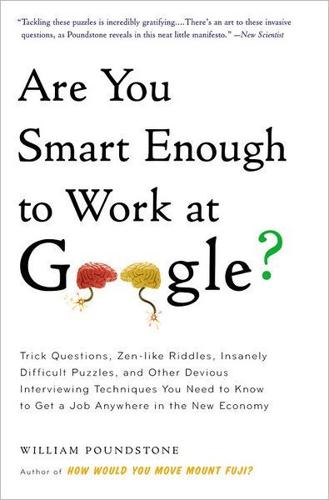
Are You Smart Enough to Work at Google?: Trick Questions, Zen-Like Riddles, Insanely Difficult Puzzles, and Other Devious Interviewing Techniques You ... Know to Get a Job Anywhere in the New Economy
by
William Poundstone
Published 4 Jan 2012
He spent much of his lunch calculating how many extraterrestrial civilizations there were in the universe and how close the nearest one would be. This was the classic “Fermi question.” Back at the University of Chicago, Fermi tormented his students with only somewhat easier questions. His most famous classroom riddle was, “How many piano tuners are there in Chicago?” Fermi staunchly believed that anyone with a PhD in physics should be able to estimate just about anything. Somewhere along the line the “PhD in physics” part got dropped. Today’s employers have gotten the idea that everyone, including humanities majors, should be able to estimate odd quantities on a job interview.
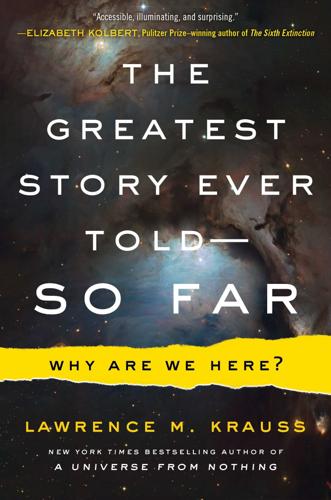
The Greatest Story Ever Told--So Far
by
Lawrence M. Krauss
Published 21 Mar 2017
He refined his abilities and helped his students do so by inventing what we now call Fermi Problems, which he is also said to have assigned at lunchtime each day to the team working for him. My favorite problem, which I always assign to my introductory-physics students, is “How many piano tuners are there in Chicago?” Try it. If you get between one hundred and five hundred, you did well. Fermi won the Nobel Prize for his experimental work, but his theoretical legacy for physics may be far greater. True to form, the “theory” he proposed in his famously rejected paper on neutron decay was remarkably simple, yet it did the job.
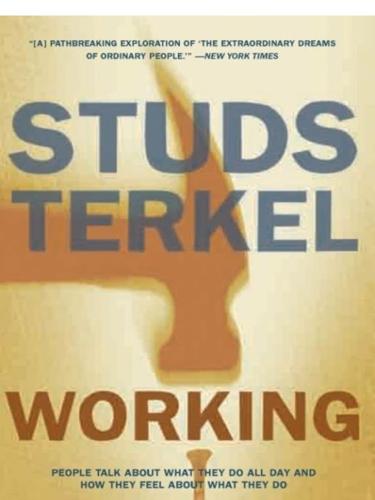
Working: People Talk About What They Do All Day and How They Feel About What They Do
by
Studs Terkel
Published 1 Jan 1974
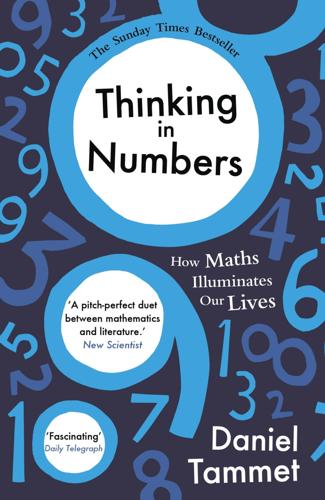
Thinking in Numbers
by
Daniel Tammet
Published 15 Aug 2012